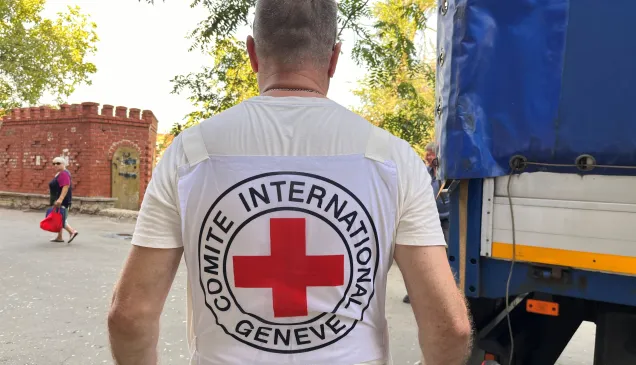Excellencies,
As we mark the second International Day to Protect Education from Attack, I congratulate Your Highness Sheikha Moza bint Nasser al Missned and the State of Qatar on your dedicated efforts to protect education.
These efforts are sorely needed: for education remains a battleground – and it should not be.
In our operations around the globe, the International Committee of the Red Cross sees that education is especially vulnerable to the shocks of conflict and violence. Fighting can destroy or damage facilities and make it unsafe for children to travel to school or attend class. School closures can be prolonged or become permanent. Sometimes – and it is shocking – schools, students and education personnel are the target of attacks.
In protracted conflicts, entire generations can lose out on education due to economic hardship. This can increase exclusion and abuse for many, particularly girls.
While the ICRC is not an education specialist, we know how to operate in conflict. We partner with others, for example, we are pleased to have signed an agreement with the Education Above All Foundation in Qatar to capitalize on our strengths and increase our collective impact. Together with our partners, we work with communities and governments to mitigate the impact of conflict and violence on education systems.
School communities are well-positioned to implement protective measures, and we work with them to design local safety protocols, contingency plans and policies.
For example, in Brazil, the ICRC developed a digital platform and app so teachers can report security incidents in school in real-time and request support.
Enhancing their risk management capabilities has reduced the number of school closures in Rio de Janeiro by 46%, despite a 39% increase in shootings in the same area. This approach has now become public policy in many municipalities.
In conflict-affected communities in Ukraine, Armenia, Azerbaijan and elsewhere, our teams train children and education personnel on risk awareness and safer behaviour; and provide psychosocial support to help them deal with stress and trauma.
Protecting education also means ensuring that laws, policies and military doctrine and training are in place to direct the behaviour of weapons bearers.




